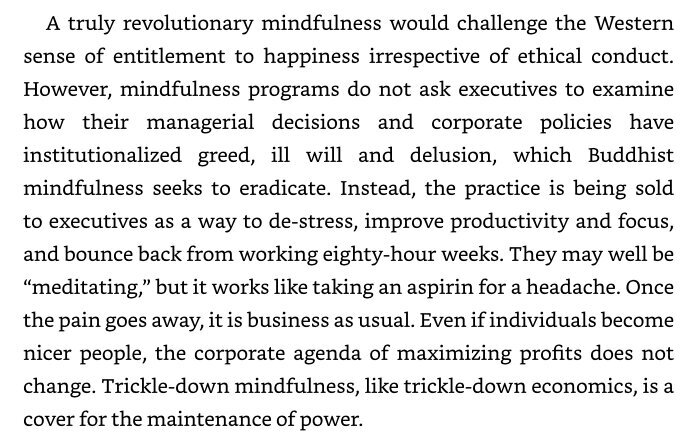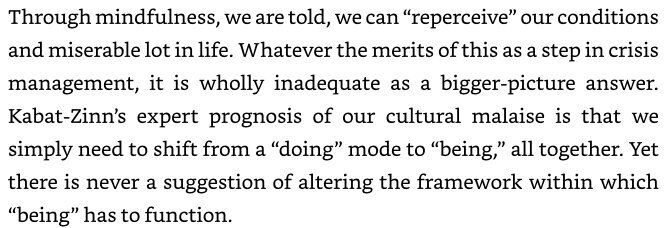Boredom as imbalance:
"Boredom is a function of attention. We are learning new modes of attention — say, favoring the ear more than the eye— but so long as we work within the old attention-frame we find X boring … e.g. listening for sense rather than sound (being too message-oriented). Possibly after repetition of the same single phrase or level of language or image for a long while — in a given written text or piece of music or film, if we become bored, we should ask if we are operating in the right frame of attention. Or — maybe we are operating in one right frame, where we should be operating in two simultaneously, thus halving the load on each (as sense and sound)."
~ Susan Sontag
"Boredom is a function of attention. We are learning new modes of attention — say, favoring the ear more than the eye— but so long as we work within the old attention-frame we find X boring … e.g. listening for sense rather than sound (being too message-oriented). Possibly after repetition of the same single phrase or level of language or image for a long while — in a given written text or piece of music or film, if we become bored, we should ask if we are operating in the right frame of attention. Or — maybe we are operating in one right frame, where we should be operating in two simultaneously, thus halving the load on each (as sense and sound)."
~ Susan Sontag
Last edited:





